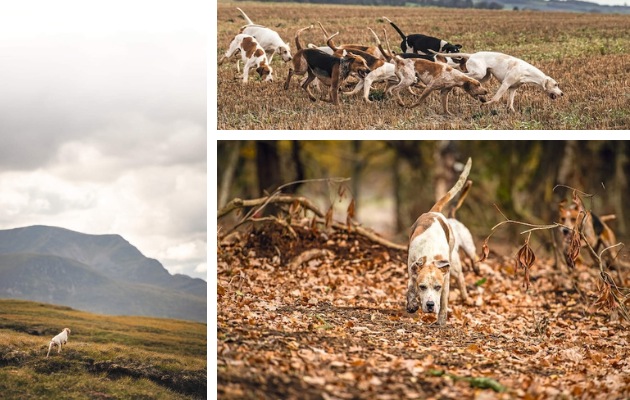Learn your running mute from your dead ground, your quartering from back track with The Field's useful guide
Breast-high: warming air allows scent molecules to rise up through evaporation and convection so that even ground scenters can carry their noses high.
Dead ground: lower-lying, colder or wetter patches sometimes cause gundogs to lose the scent even of a bird lying dead.
Running mute: it is a fault for hounds not to make music on a trail but equally a fault for gundogs to speak when they find.
Lining: whereas hounds need to follow a line, gundogs should quarter methodically when searching for game and only follow the line of wounded quarry.
Quartering: all gundogs and hounds do this when searching for the initial scent but, once they have it, the next stages are different.
Back track: hunting the scent backwards from the direction in which it was laid is a fault.
Cheek wind: wind coming from the side causes scent to pass across the animal’s nose, so the pattern of quartering must be adjusted to allow the full scent to come into the nose.
Back wind: when the wind is from behind the direction of hunting; this causes a lot of problems and an experienced huntsman or handler will change the cast to compensate.
Blinking: where a gundog runs over the top of a retrieve lying in plain sight, usually because of dead ground; this can also happen where a trail is very confused.
Rioting: the traditional term for animals following the wrong scent; can be hard to prevent, even among well-controlled hounds and gundogs.
Lifting: the huntsman or handler moves his animals from one part of the scent trail to another more advantageous section; frowned upon in hunting but often used in dog handling on blind retrieves.
Foiled: where anything from a flock of sheep to a cyclist has crossed the line causing an interruption in the scent.





